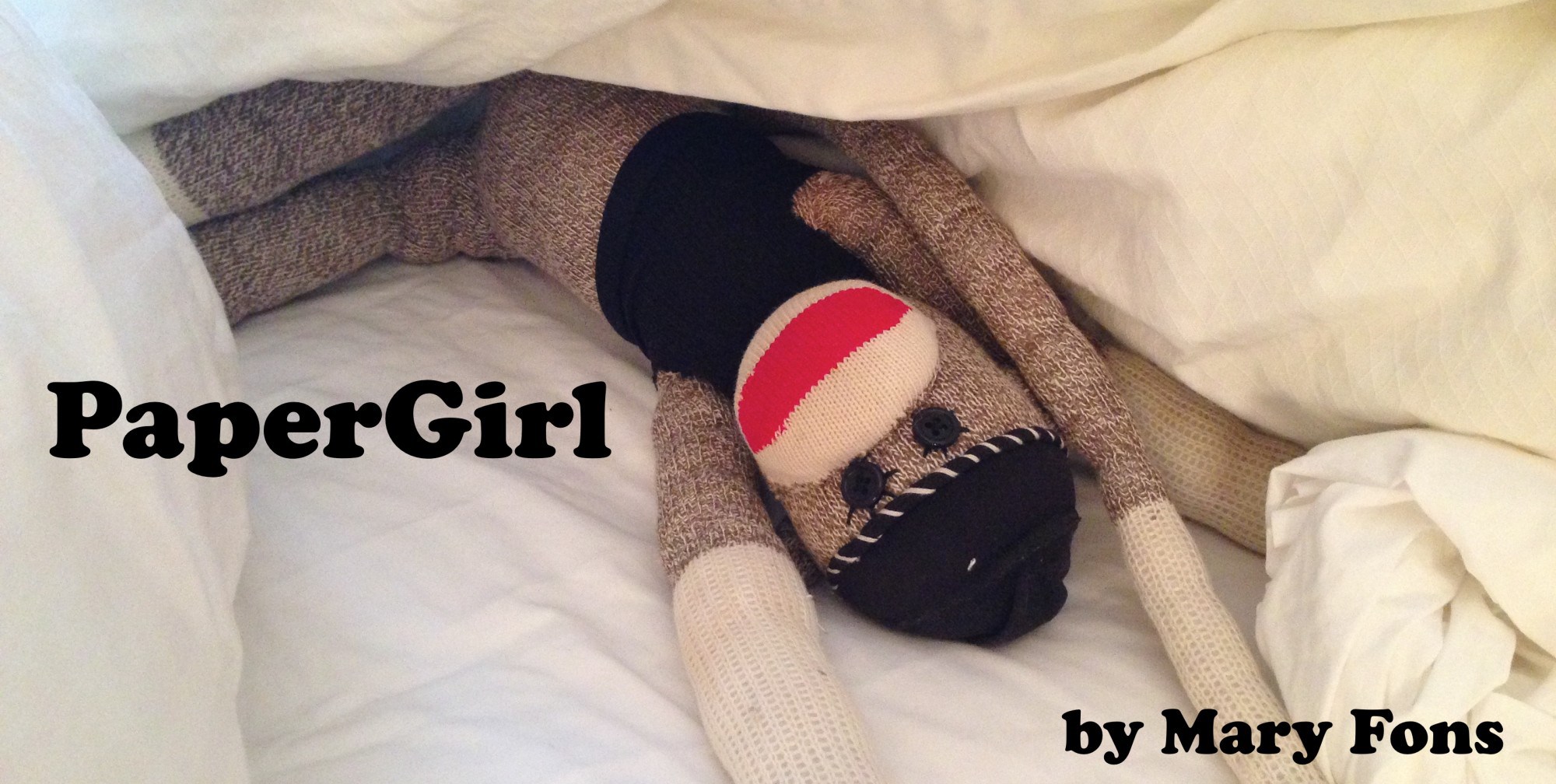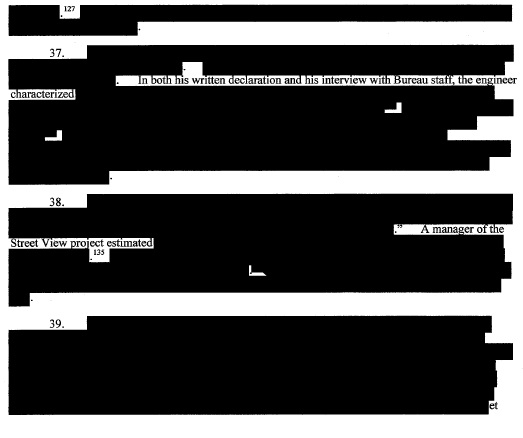


Incidentally, that Thiebaud painting lives in Sacramento’s Crocker Art Museum. I saw it with my own two eyes, which, incidentally, are usually bigger than my stomach but never as large as my mouth.
My trip to California over the weekend wasn’t for business. I went and spent time with Leesa, my favorite aunt. She was my favorite aunt before the weekend; now I feel like we should fill out some kind of embossed certificate to announce it. Thanks, Auntie.
It had been a number years since Leesa and I had spent time together. The last time I saw her was when her father died in 2009. That was a suboptimal visit, as you can imagine. Everyone was sad about grandpa being dead and busy with funeral and burial stuff. “Sad and busy” is a dreadful state, and it inevitably comes upon you when someone you love dies. Me and my aunt wanted to reconnect without trying to work around a wedding or a funeral, so I flew out to California to see her, her adorable dog, Otto Lieberman, and the beautiful rosemary bushes that line the patio of her well-appointed California home.
We talked a lot. We drank a lot of coffee. We went to the Crocker Museum to have lunch and see art. We attended a black-tie dinner party. We talked more. We made another pot of coffee. It rained all weekend, so the main component of the visit was conversation. Lucky for me and my aunt, we’re good at conversation and share many (all?) of the same values and interests. And since 75% of my family members are also her family members, there was plenty to discuss in that area. The Fons side of the family was broken up into chunks early on in my life and it’s been a Humpty Dumpty ride ever since. This is true for me; I suspect it feels the same for other Fonses I know aside from my aunt, but I won’t speak for them.
Over the course of our visit, I got some information about my father. I haven’t seen him since Grandpa’s funeral either, but Leesa (his youngest sister) stays in contact. I am wary when I’m about to get information about him and hardly eager to ask for it; the presence of my father in any sort of reportage rarely bodes well. His issues are many. Despite my numerous attempts to make even a surfacey relationship work over the years, we have long been estranged.
I looked up “estranged” in the dictionary. I thought it meant “not in contact.” It’s a bit sadder than that:
estranged |iˈstrānjd|
adjective
(of a person) no longer close or affectionate to someone; alienated: John felt more estranged from his daughter than ever | her estranged father.
My aunt told me something by accident that made me at once very sad and very happy, which is an emotional combination more common than being sad and busy, but not any more comfortable. We were talking about pies, Leesa and I, our favorites and methods for making them. We were at the kitchen table.
“You know, we Fonses have a real sweet tooth,” she said, coffee mug in hand. It rained so hard that day, leaves and mud fell out of the gutters onto the sidewalks.
“Really? Like, all of us?” I asked, instantly brightening.
My love of sugar causes me much anxiety. I’m usually worried I eat way, way too much of it, but when I try to eliminate it from my diet (or even cut down on it) I see no point in being alive. That I was somehow not responsible for it, that my sweet tooth was a genetic sentence, that my love of pecan pie and pistachio ice cream actually served to count me among my tribe, well, this made me feel fantastic and warm inside. I instantly thought about eating another one of Leesa’s gourmet marshmallows from the pantry.
“We’re definitely sweets people,” Leesa said. “Your dad, he’ll eat dessert for breakfast. Always would, always loved to. Pie, cheesecake. That’s not for me, but that’s what he would eat for breakfast every day if he had the option. Isn’t that funny?”
I swallowed too much hot coffee. It burned the back of my throat but couldn’t melt the insty-lump that had formed there when Leesa said the words, “Your dad” and “dessert for breakfast.”
I love eating dessert for breakfast. It’s my favorite thing in the world. If there’s cheesecake in the house, I will eat a slice for breakfast and genuinely take no interest in it the rest of the day. In my world, apple pie and coffee are perfect 7:00am foods. Just today, a hazelnut Ritter Sport chocolate bar and a pot of Earl Grey tea constituted my breakfast and you betcher bippy I was at my olympic best all day.
I didn’t know I shared this trait with my father. I didn’t pick up my love for coconut creme pie with my morning coffee by seeing him eat coconut creme pie with his morning coffee. I couldn’t have; I’ve been seated at a breakfast table with the man no more than a handful of times since the divorce. To be thirty-something and discover things about your father, (e.g., he likes cheesecake for breakfast just like you) this information would be bittersweet if he were dead. But as my father is alive, these sorts of discoveries are bittersweet as well as bizarre. We could technically have cheesecake for breakfast together in the near future, my dad and I.
Technically, we could. But emotionally, we can’t. Philosophically, we can’t. Historically, we simply can’t.
I made a pie tonight for Yuri. Buttermilk-brown sugar. Seeing as how it’s delicious and wrapped in foil on the little table where we eat, breakfast is served.

I love Southwest Airlines.
This is not a paid or otherwise incentivized post. It’s a paean, a big sloppy kiss on the nose of every 747 in the SA fleet. In a time when air travel experiences so often fall into categories ranging from disappointing to Rape of Nanking-y, Southwest is a blue-and-orange oasis of sanity that confers dignity upon the people they move around in airplanes. Those people are me.
Here’s what life is good at doing: changing. Here’s what Southwest is good at doing: understanding. When you buy a ticket from Chicago to New York City for a May 3rd flight, for example, and you realize you could return two days earlier and make an important meeting, you can move your flight on May 3rd to May 1st — at no charge. Anytime I do that (and I do that a fair amount right now, seeing as how I live nowhere) I feel like I’m getting away with something. I feel like there must be a catch, a shoe waiting to drop, a Customer Service Representative waiting in the wings to slap a not-insignificant fee on me for not being able to live life with zero fumbles and total clairvoyance. But no one slaps me. And I get back to work with a little extra “zing!” even when I’m just typing something into a Google spreadsheet. (I try to keep such tasks to a minimum.)
Most people’s beef with Southwest is that you don’t have an assigned seat. Why do you want that?
Another reason I love Southwest is because they don’t charge you extra for your luggage and they let you bring two pieces! At no charge! I Every other airline charges what I think of as a fine, not a fee. They’re fining you for needing to brush your teeth later, fining you for not having a magical dress that you can travel in, go to a meeting in, go out to dinner in, and also feel like wearing again the next day and the day after that. Southwest knows that when you leave your home for a week you need stuff, and that stuff won’t fit in your briefcase. Rather than add $50+ dollars to your transportation cost, however, they’ve figured out how to not do that while keeping airfare prices for the consumer still relatively low. Relatively really low. How could this be possible unless the people running Southwest Airlines were really good at running an airline? Methinks they are good. Also: peanuts.
Thank you, Southwest Airlines. Today, the gate agent who boarded the flight from Denver came onto the plane and announced a birthday before we pushed off. She also said:
“This is a shout-out to Mary Katherine Fons. I love your quilts! I’m a quilter! I love your magazine!”
United has never done that. And you know, I don’t plan on giving them the opportunity to try. I’m a Southwest girl and I wear my wings with pride. Low, low-cost pride.

I’m in California now, writing from the guest bedroom in my aunt’s house. It rained today, so you needn’t feel envious if you’re still trapped in the icy tundra; it poured all day, which kept me from sipping pina coladas by the pool. There’s still time.
But I’m still thinking of the winter in Chicago and since my last observation on it was so spooky and dour, I thought I’d share two actual conversations that happened while I was there that, while not sane by any means, at least show a lighter side to the cold in Chicago. My theory is that people are losing their minds and therefore say strange and unusual things.
Example No. 1 is an exchange between me and my cabdriver en route to the train station before the Fremd gig on Wednesday. It was 5:40am and the temperature was -14. I opened up the door to crazy-loud Haitian music and love beads hanging all over the cab. The driver shouted:
DRIVER: Good morning, sweetheart!
ME: Hey. I’m going to Ogilvie Station, please.
DRIVER: Let’s do it. You up early today, my lady!
ME: I’m going to the suburbs to talk to high school students about writing.
DRIVER: You know what I say? I say, all I know is that I was born nekkid. And I’ma die nekkid. That’s it!
ME: (pause.) Yeah. I guess…that’s true.
Later, waiting for the bus (it was a long day) the man huddled with me at the bus stop began to talk to me like we had known each other since the fifth grade. He was not an insane person, far as I could tell. He was dressed nicely, he was articulate. But he was made weird by the cold, which had clearly paralyzed parts of his brain — the parts that keep one from talking to strangers about alligators.
MAN: Cold, cold, cold. That’s what I say. Move out if you don’t like it!
ME: Hm, yep.
MAN: I been thinkin’ about it.
ME: Yeah, Florida sounds good right about now, right?
MAN: No! No, no, no. Not Florida. The alligators’ll come up under you and eat you alive. Through the window. Come up under you car and hide and then “gulp!” they’ll eat’cha!
ME: (wide-eyed) Wow.
MAN: Oh, yes. They’ll come in the windows and they’ll eat anything. They’ll eat a baby.
ME: Look at the time. I’m gonna have to cab it. Nice talking to you.
They really will eat people, alligators. Definitely. And I confirmed with two people that they will come into the house through a window or door. But at the bus stop in subzero temperatures, hearing about these things eating babies in balmy Sarasota was too much.
All I know is that I was born alligator, I’ma die alligator.

I moved quickly on the street to get to the Roosevelt station. I wasn’t running late; I was running from the cold.
The escalator up to the platform at the Roosevelt el stop is long because the platform is up high off the street. It’s a painful ride if you have a heavy suitcase with you: you’re on this long, moving staircase and you simply can’t force it to go faster. When you hear your train coming — worse yet, leaving — you can’t will yourself up to the top of the escalator in time to catch it. You’re stuck.
I was stuck on that escalator ride this morning, straining my neck to try and hear my train was approaching or leaving, straining so hard I almost pulled a muscle. I could not miss the train. I could not miss the train because that would mean I would have to wait for the next one outside on the Roosevelt platform. The Roosevelt platform, like the rest of Chicago, was/is dangerously cold.
“Today,” the city weatherman said, “it will feel like -10 to -20.” But “feel” is a useless term when you’re talking about cold this absurd. Humans “feel” only bitterness, aches, and dread at -10 to -20 degrees. Records are being set every day in Chicago — 2014 now the coldest winter on record — and the winter has taken on a wicked quality. There’s an evilness about it. The cold has a personality and it is monstrous. I was in my home city for exactly 49 hours and I felt scared of the beast that has overthrown her.
The monster has sharp teeth. It’s eating people, throwing men, women, and children into its icy, cavernous maw. Inside it, the wind blows and blows forever and there are coats everywhere but they all have holes and no hoods. Hell does not exist but if it did, the best joke on everyone would be that it is not hot and firey, but cold and empty.
The worst part about the snickering, sharp Cold Monster is that it made me afraid of Chicago the two days I was there. I saw people huddled and angry, shuffling along the streets in clothes that looked like bandages. No one speaks. It hurts to breathe. What I didn’t see or hear was worse: three-quarters of the usual citizens weren’t on the streets at all: no one comes out unless they have to. Millions of eyes are looking out from high above or below, waiting out the cold inside (as long as they can without going crazy and you can bet some have gone crazy.)
It’s a terrible thing to be afraid of something (or someone) you love. It’s like being a child and seeing a parent get drunk. The child can’t understand the adult’s funny walk, or why they’re so angry, or why their voice sounds mushy. It’s startling, it’s confusing, and even if it only happens once, the child gets a glimpse into a different, frightening side of their loved one that they will never forget. The fright they experience is indelible, even if the parent never drinks again, because there’s a world inside that person that he/she never imagined could exist.
And it’s cold there.

Poetry is in my head a lot lately; love may be responsible for this. Loss can do it, too, and I’ve had doses of both over the past few months. Nothing but nothing is better than poetry for unsolvable situations like love and loss.
And now, a poem I recalled while walking through the Midway airport earlier today. I’m home in Chicago for 48-hours before leaving for California. I wrote this piece in my head while gazing at a roaring fire in a fireplace in early 2012. I was up at our place in Door County where it was almost as cold as it is tonight. The poem took about two hours to write, which is either not any time at all or a very long time, depending on how much poetry you write. Because I composed it in my head, I had to repeat the lines over and over so I wouldn’t forget them; as I edited, those lines had to be re-memorized and then put with the other phrases. As soon as I had it just right, I fetched some paper and wrote it down.
I enjoy writing poems in this way. It’s challenging for sure, and there’s a lyricism that happens naturally when you don’t have the paper to tack you down. This piece is pointedly in the style of Dorothy Parker; I felt a kinship with her vis a vis the subject matter.
I hope you enjoy the piece. Do not give it to your lover if he/she snores. I am beyond grateful I don’t have that problem these days. If I did, this poem would not see the light of day. Poetry is dangerous!
For [REDACTED]
by Mary Fons (c) 2012
I shall not see you anymore;
You snore.I cannot sleep!
Besides, you weep
(Pray tell, what can a man be for?)Your kiss lacks the ability
To prime my parts most womanly,
And if they did but once or twice,
Well, that was me just being nice,
I feel nothing for you, dear,
I’ll repeat, while I’m still here:Don’t bother with text messaging –
[REDACTED] you,
This is me, exiting,
And where I’m going I’ll have no cell –
Best to find the next fresh hell
Than stay with such a wretched bore, Oh, I am certain to my core:
I shall,
nevermore.Oh, dear, my dear:
You snore.